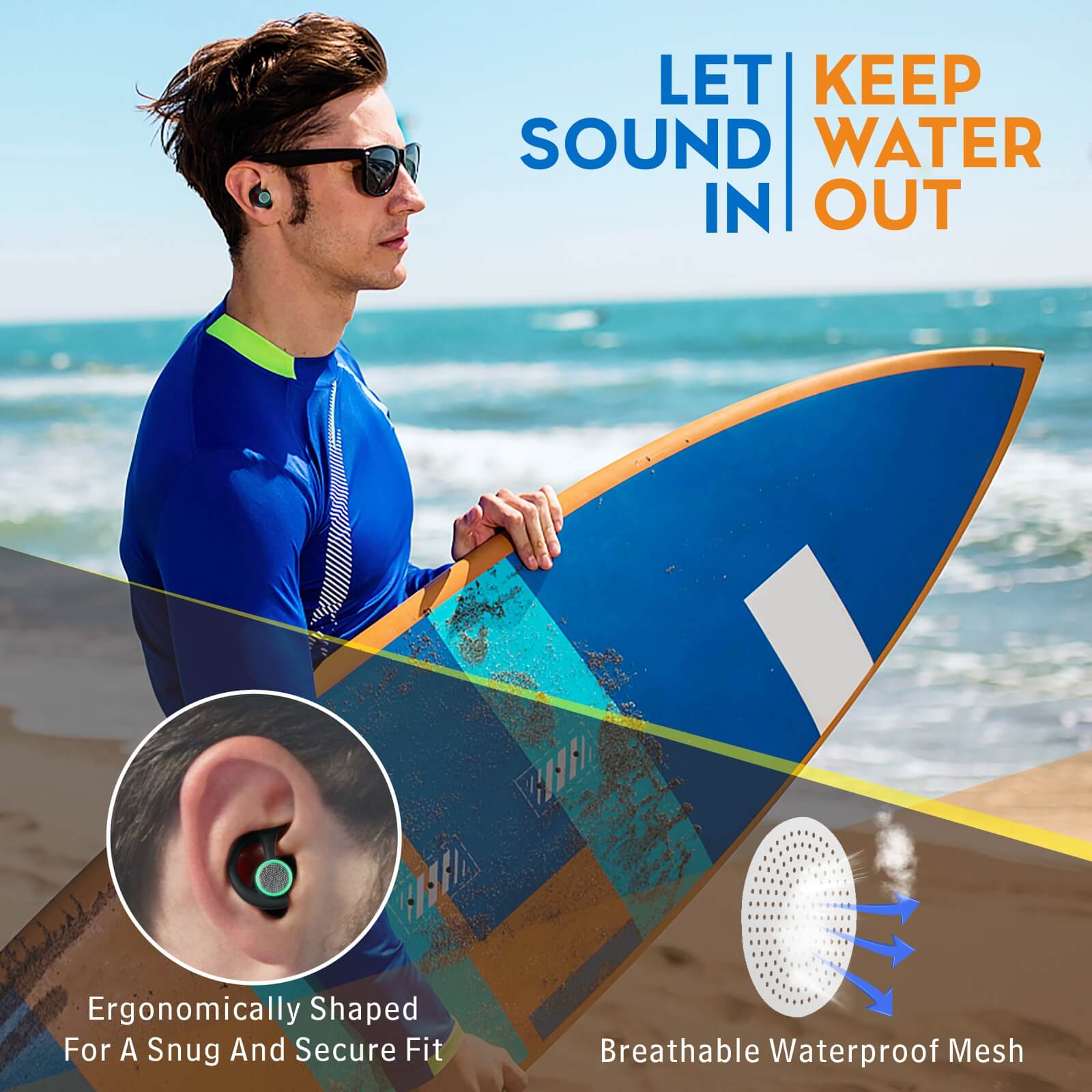7 Frequently Asked Questions About Swimming Ear Plugs Answered
Corps
Swimming ear plugs are essential accessories for anyone who enjoys spending time in the water. Whether you are a professional swimmer or simply enjoy recreational swimming, protecting your ears from water and potential infections is crucial. In this article, we will answer seven frequently asked questions about swimming ear plugs to provide you with a comprehensive understanding of their importance and usage.

Why should I use swimming ear plugs?
Using swimming ear plugs offers several benefits. Firstly, they prevent water from entering your ears, which can cause discomfort and potentially lead to ear infections. Secondly, ear plugs can help reduce the risk of swimmer's ear, a common condition caused by water trapped in the ear canal. Lastly, ear plugs can also protect against other water-related issues such as surfer's ear or exostosis, a condition where bony growths develop in the ear canal due to prolonged exposure to cold water.
What types of swimming ear plugs are available?
There are various types of swimming ear plugs available to suit different preferences and needs. Some common options include:
- Custom-molded ear plugs: These are made specifically for your ears, providing a perfect fit and maximum comfort.
- Silicone ear plugs: These are soft and malleable, allowing you to shape them to fit your ears.
- Flanged ear plugs: These have multiple flanges that create a seal in the ear canal, preventing water from entering.
- Wax ear plugs: These are made from a mixture of wax and cotton fibers, providing a snug fit.
How do I properly insert swimming ear plugs?
Proper insertion of swimming ear plugs is crucial to ensure their effectiveness. Here are some steps to follow:
- Clean your ears before inserting the ear plugs to remove any excess wax or debris.
- Hold the ear plug between your thumb and index finger and gently roll or mold it into a shape that fits your ear canal.
- Reach over your head with the opposite hand and pull up on the outer ear to straighten the ear canal.
- Insert the ear plug into the ear canal and hold it in place for a few seconds to allow it to expand and create a seal.
- Repeat the process for the other ear.
Can swimming ear plugs cause ear infections?
When used correctly, swimming ear plugs should not cause ear infections. In fact, they help prevent infections by keeping water out of the ear canal. However, if ear plugs are not cleaned and maintained properly, bacteria and fungi can grow on them, increasing the risk of infection. It is important to clean your ear plugs regularly and replace them if they become damaged or worn out.
Are swimming ear plugs suitable for children?
Yes, swimming ear plugs are suitable for children. In fact, children are more prone to ear infections due to their smaller ear canals. Using ear plugs can help protect their ears and prevent discomfort or potential complications. It is important to choose ear plugs specifically designed for children and ensure they fit properly.
Can I wear swimming ear plugs for other water activities?
Absolutely! While swimming ear plugs are commonly used for swimming, they can also be worn for other water activities such as surfing, kayaking, or water skiing. Any activity that involves water entering the ears can benefit from the use of ear plugs to prevent water-related issues.
Conclusion
Swimming ear plugs are essential accessories for anyone who wants to protect their ears while enjoying water activities. By using ear plugs, you can prevent water from entering your ears, reduce the risk of infections, and safeguard against other water-related issues. Remember to choose the right type of ear plugs, properly insert them, and maintain good hygiene to ensure their effectiveness. Stay safe and enjoy your time in the water!










commentaires